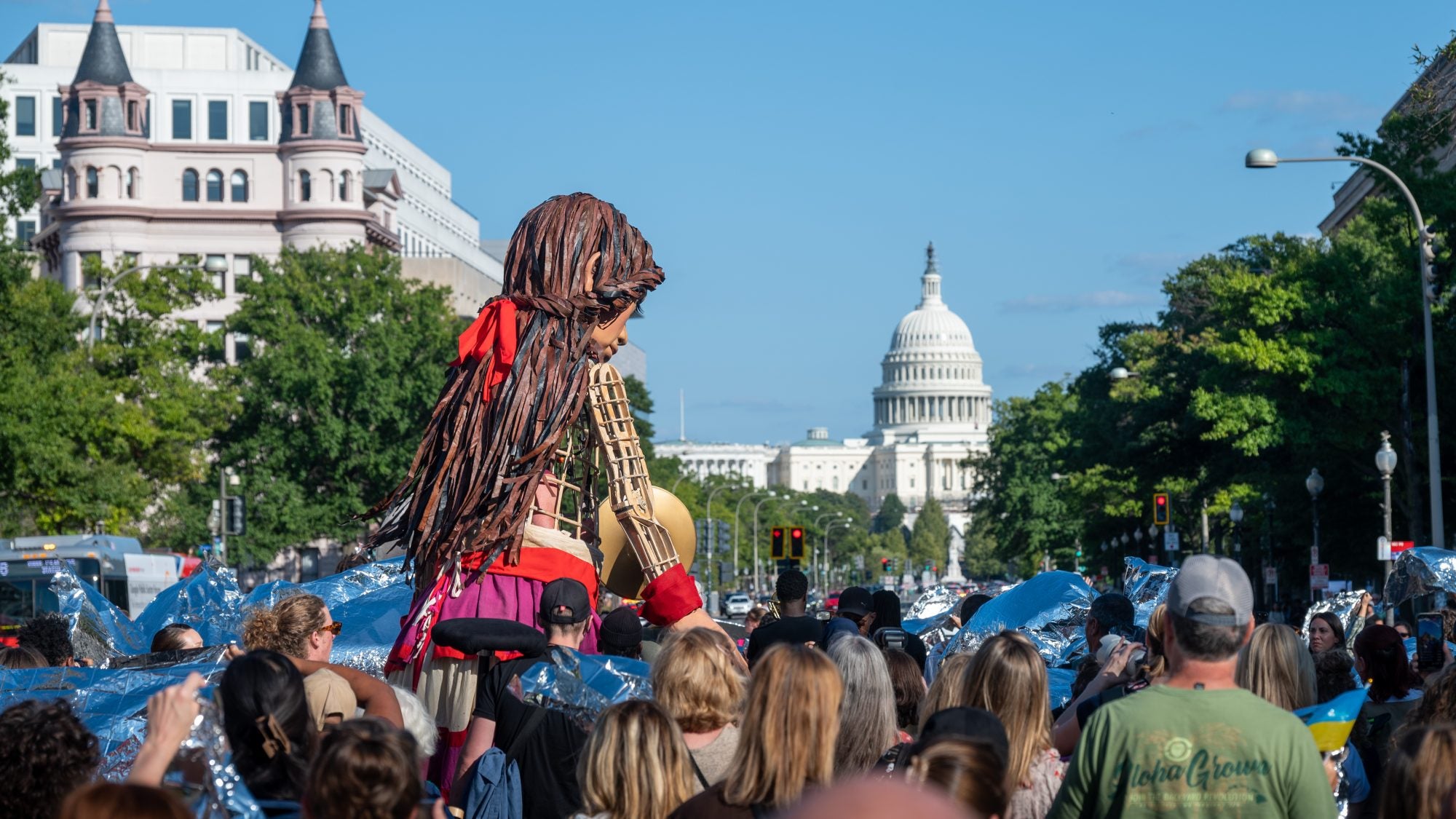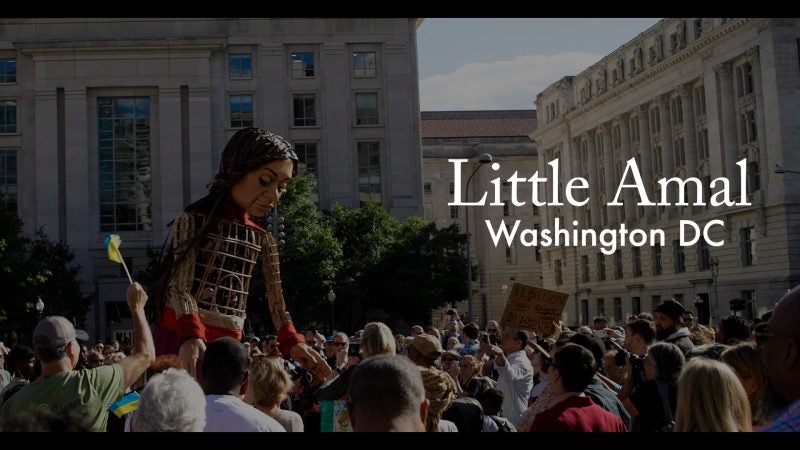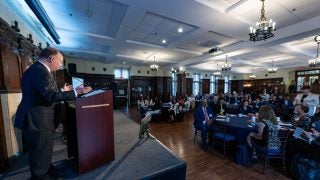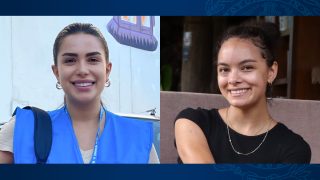Humanizing Politics Through Art
As an institution dedicated to humanizing politics through performance, The Lab was a natural partner for Little Amal. Georgetown students also played a critical role in the event production as student fellows and coordinators from The Lab helped organize the event while student performers, musicians and dancers added to the theatrical experience.
“At a time of such intense division and toxicity, Little Amal has had a rare power to bring people together to engage with compassion and to bring out the best in our humanity,” said Derek Goldman, artistic and executive director of The Lab. “The Lab has an unusual opportunity and mission as an arts initiative empowered by being part of one of the world’s leading schools for international affairs. Our context right here in DC enables us to work to amplify voices and narratives that cast critical issues in a new light.”
Gillian Huebner, executive director of the Collaborative on Global Children’s Issues, hopes that Little Amal’s performance in DC will change the tune of the conversations around migration in the nation’s capital.
“Immigration policy garners a great deal of attention and debate, much of which is rarely child-centered. The predominant focus of conversations around immigration policy is border enforcement. Amal helps to shift the focus,” Huebner said. “What if we rethink migration from the perspective of a child and prioritize what that child needs?”
As a follow-up to the event, the Collaborative on Global Children’s Issues will host a workshop in the Copley Lounge to discuss child-sensitive policies for children on the move in U.S. foreign and domestic policy on Sept. 22.
Carolina Bomeny (SFS’25) has been involved with The Lab since her first year at Georgetown. After serving as a student fellow at The Lab, Bomeny became a student fellow co-facilitator while supporting communications efforts for The Lab. In the lead-up to the event, she helped rally students and faculty to march with Amal.
“The Lab is a chance for me to connect with other people on a human level and to know that there are things that you can do, even if small, to contribute to a larger conversation and really see and practice what it means to humanize politics through art,” Bomeny said.
Follow along with Georgetown students and Little Amal as she walked through the streets of the nation’s capital.
Little Amal’s Journey to the U.S. Capitol
Starting at Freedom Plaza just steps away from the White House, more than a hundred members of the Georgetown and wider DC community greeted Amal before she started her journey to the Capitol.
A go-go band led by Shorty Corleone and highlighted by Georgetown students in a class taught by Natsu Onoda Power performed a specially composed song for Amal from the sub-genre of funk music as people danced and shouted, “Welcome Amal!” in unison.
Before embarking on her journey through DC, actress, singer and the Emmy-nominated host of WETA Arts Felicia Curry sang “No One Is Alone” to Amal accompanied by pianist Glenn Pearson.




